MS-ESS1-3
Analyze and interpret data to determine scale properties of objects in the solar system.
-
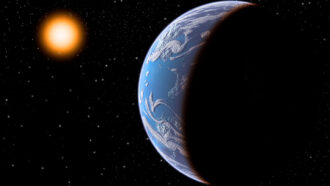 Planets
PlanetsScientists Say: Habitable Zone
The habitable zone is the region around a star where temperatures could be right for worlds to host liquid water.
-
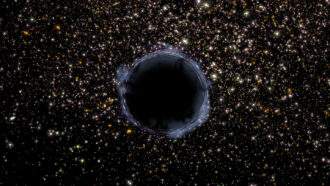 Space
SpaceA massive rogue roaming our galaxy may be a black hole
Alternatively, this unseen wanderer might be a hefty neutron star. Whatever it is, its gravity caused starlight to be warped — and that gave it away.
-
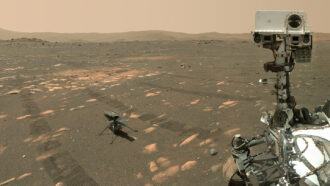 Planets
PlanetsNoises sound totally different on Mars than on Earth. Here’s why
The Perseverance rover recorded the sound of laser pulses on Mars. Scientists used those recordings to determine the Martian speeds of sound.
-
 Materials Science
Materials ScienceLet’s learn about diamond
Diamond is born under extreme heat and pressure inside Earth and elsewhere in the universe.
-
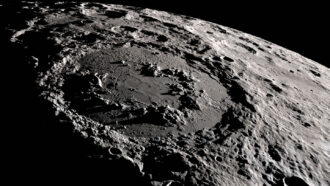 Space
SpaceAncient volcanoes may have left ice at the moon’s poles
Volcanic eruptions billions of years ago may have produced several temporary atmospheres on the moon that held water vapor.
By Anna Gibbs -
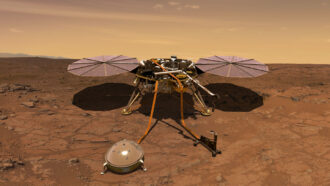 Planets
PlanetsThe InSight lander has caught a large ‘earthquake’ on Mars
This magnitude 5 quake is offering scientists a peek at what’s going on beneath the Martian surface.
-
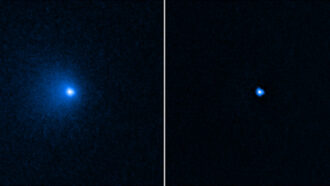 Space
SpaceBehold: The biggest known comet in our solar system
This “dirty snowball” in space is about twice as wide as Rhode Island and darker than coal.
By Sid Perkins -
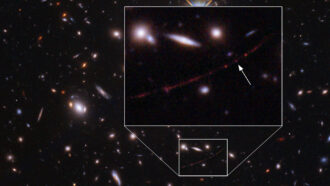 Space
SpaceA star called ‘Earendel’ could be the most distant ever seen
A thin red arc found in an image from the Hubble Space Telescope shows starlight from nearly 13 billion years ago.
By Liz Kruesi -
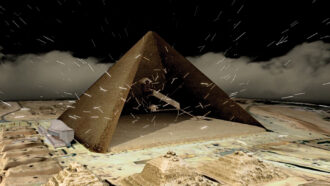 Physics
PhysicsMuons reveal the inner worlds of pyramids, volcanoes and more
Tracking these subatomic particles can uncover surprising hidden structures.
-
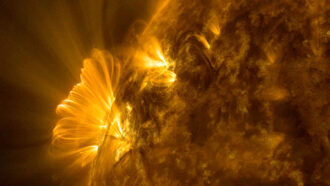 Space
SpaceSome of the sun’s iconic coronal loops may be ghostly illusions
Wrinkles in the sun’s outer atmosphere might trick the eye into seeing glowing arches, scientists now report.
-
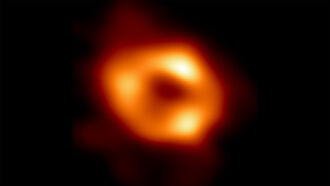 Space
SpaceWe finally have an image of the black hole at the heart of our galaxy
New observations from the Event Horizon Telescope reveal the chaotic region around the Milky Way’s central black hole, Sagittarius A*, in extreme detail.
By Liz Kruesi and Emily Conover -
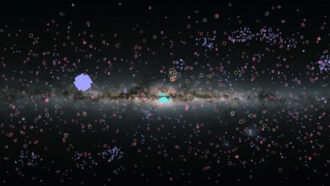 Planets
PlanetsAnalyze This: Some 5,000 planets orbit stars other than our sun
A new cache of confirmed exoplanet discoveries marks a milestone in planets found beyond our solar system.